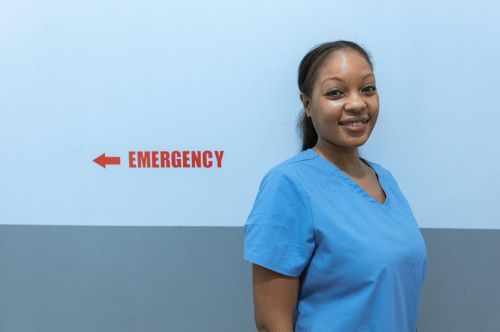

Have you ever wondered why nurses seem to be everywhere now—not just in hospitals, but in clinics, schools, research centers, and even Zoom calls? It’s not your imagination. The role of the nurse is changing fast. What used to be a job focused mainly on bedside care has grown into something much bigger. Nurses today are making decisions, leading teams, and helping shape how healthcare works at every level. It’s no longer just about following doctor’s orders. It’s about improving care, solving problems, and being at the center of a system that desperately needs strong voices.
This shift didn’t happen overnight. It’s been building for years. But recent events pushed it forward. The pandemic pulled back the curtain on a healthcare system under stress. Nurses stepped in to do far more than check vitals or pass meds. They handled crises, comforted families, and helped entire hospitals stay afloat. People started seeing nurses differently. And more importantly, nurses started seeing themselves differently, too. In this blog, we will share how nurses are redefining their place in healthcare and why that shift matters for everyone.
Stepping Into Leadership, Not Just Support
Nurses have always been essential to care. But for a long time, their work was seen as supporting the plan—not shaping it. That’s changing. Nurses are moving into leadership roles, helping decide how care is delivered, not just carrying it out. They’re bringing experience, empathy, and practical know-how to the table. They’re improving workflows, guiding policies, and mentoring younger professionals who will someday take the lead.
One reason for this change is education. More nurses are going back to school, even while working full-time. Accelerated MSN programs, in particular, are helping them grow their skills fast, without putting their lives on pause. These programs are built for real-world schedules and offer focused learning in areas like leadership, education, and advanced practice. They’re giving nurses the tools to step into bigger roles in less time.
At St. Thomas University (STU), the online Accelerated MSN program offers nurses a fast, flexible path to advanced nursing roles. This CCNE‑accredited program can be completed in as few as 12 months, costs around $19,400 total, and prepares nurses for leadership and policy roles with coursework that integrates clinical practice, health promotion, pharmacokinetics, and evidence-based care. Nurses who enroll at STU gain tools to guide policy, mentor staff, and lead healthcare teams—without pausing their careers.
Responding to Real-World Challenges
Healthcare is changing fast, and not always in simple ways. Chronic illness is rising. People are living longer. Mental health issues are more visible than ever. Nurses are in a perfect position to meet these challenges because they already understand the day-to-day needs of patients. They know what works and what doesn’t. They understand how to connect care across different services.
This is why so many healthcare systems now rely on nurses to help manage care. For example, nurse case managers help patients stick to treatment plans, schedule follow-ups, and understand medications. That support can reduce ER visits and readmissions, which saves money and improves health outcomes. These roles weren’t always available to nurses in the past. Now they’re becoming key parts of the healthcare puzzle.
Nurses are also stepping up in public health. Whether it’s responding to outbreaks or promoting vaccines, they play a direct role in shaping community health. During the COVID-19 crisis, it was nurses who ran test sites, answered patient questions, and often gave the first signs that something was going wrong. Their ability to adapt and lead during a global emergency earned widespread respect. It also showed that their role needs to be seen as part of the solution, not just part of the system.
Reclaiming Autonomy in Their Work
One of the biggest shifts happening in nursing today is a push for more autonomy. Nurses want to use their full training, not just follow orders. And healthcare is starting to catch up. In many states, nurse practitioners now have full practice authority, which means they can diagnose and treat patients without physician oversight. This is helping close care gaps, especially in places where access to doctors is limited.
But autonomy isn’t just about clinical authority. It’s also about having a say in decisions that affect patient care and the work environment. Nurses are speaking up about staffing, safety, and burnout. They’re pushing for better working conditions not just for themselves but for the future of the profession. Hospitals and health systems are starting to listen. They’re forming nurse advisory boards, including nurses in executive meetings, and supporting nurse-led research projects.
This level of involvement can lead to real change. For example, some hospitals now design their patient flow based on ideas from their nursing staff. Others have built wellness programs to reduce stress and keep nurses mentally healthy. These aren’t just nice gestures. They reflect a deeper shift: healthcare is starting to understand that when nurses are part of the decision-making process, everyone benefits. All in all, nurses today are not waiting for permission to lead. They are stepping forward with confidence, backed by education, experience, and a deep understanding of what patients really need. Whether they’re managing a care team, opening a clinic, or mentoring the next generation, nurses are proving that their voice matters. And healthcare, finally, is starting to listen.


